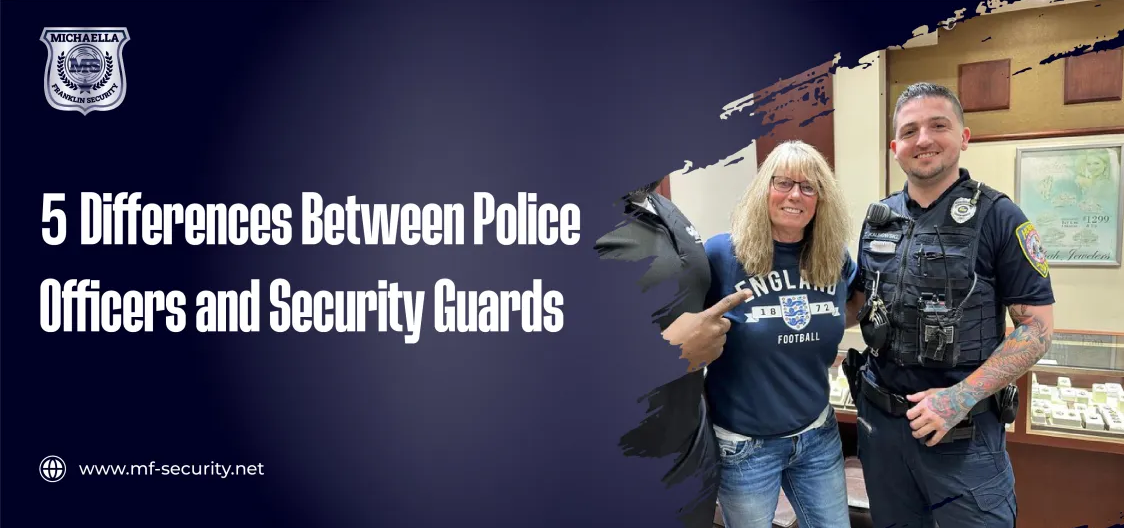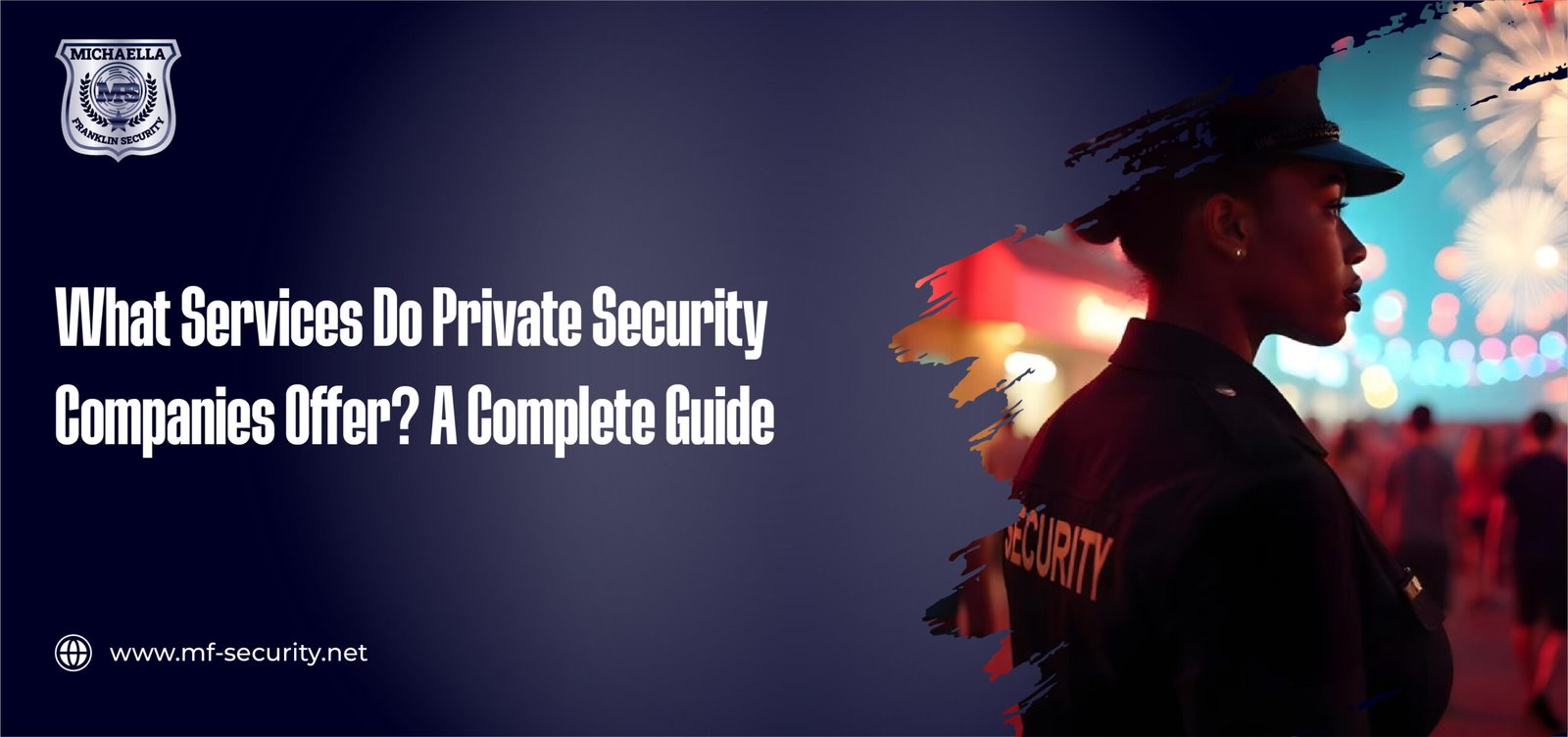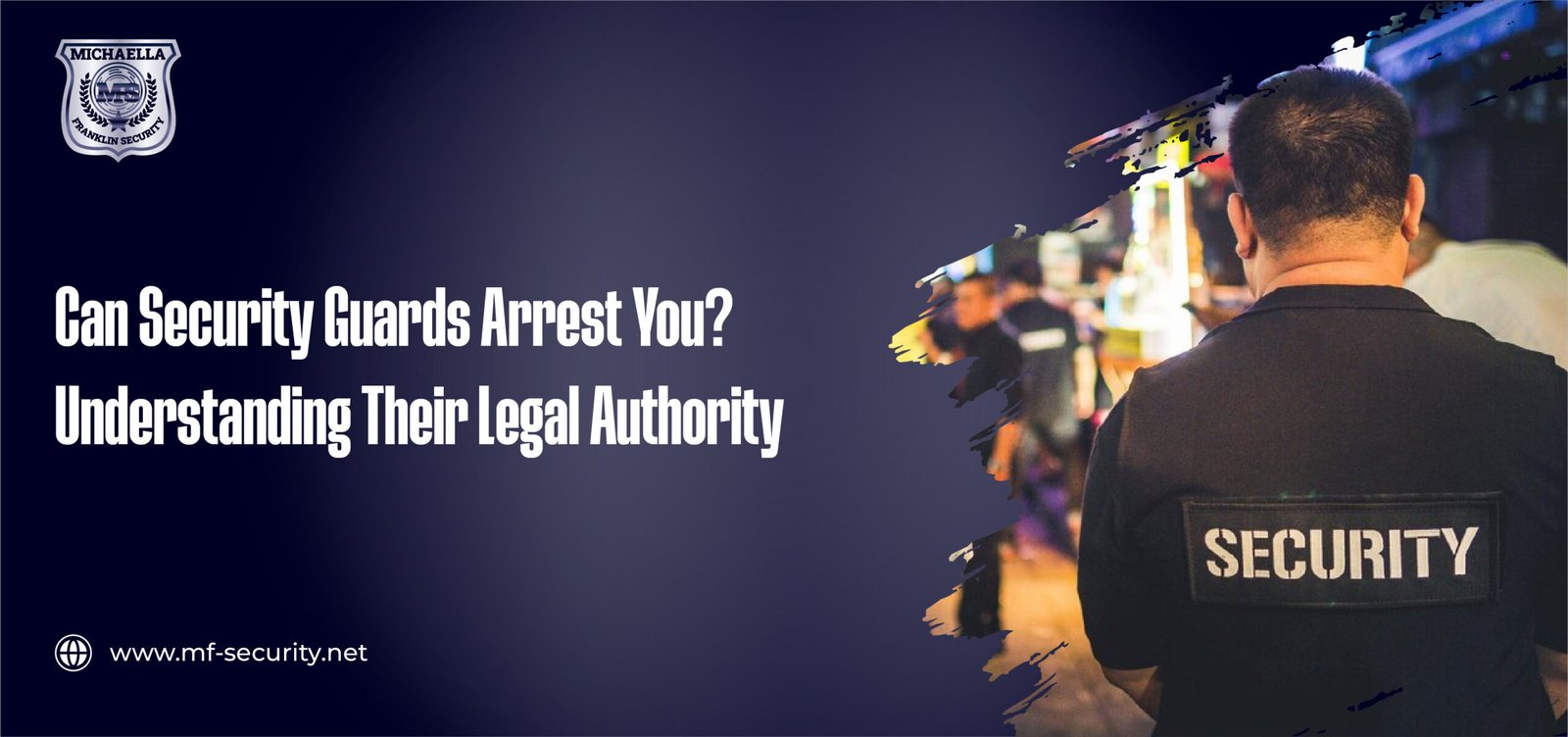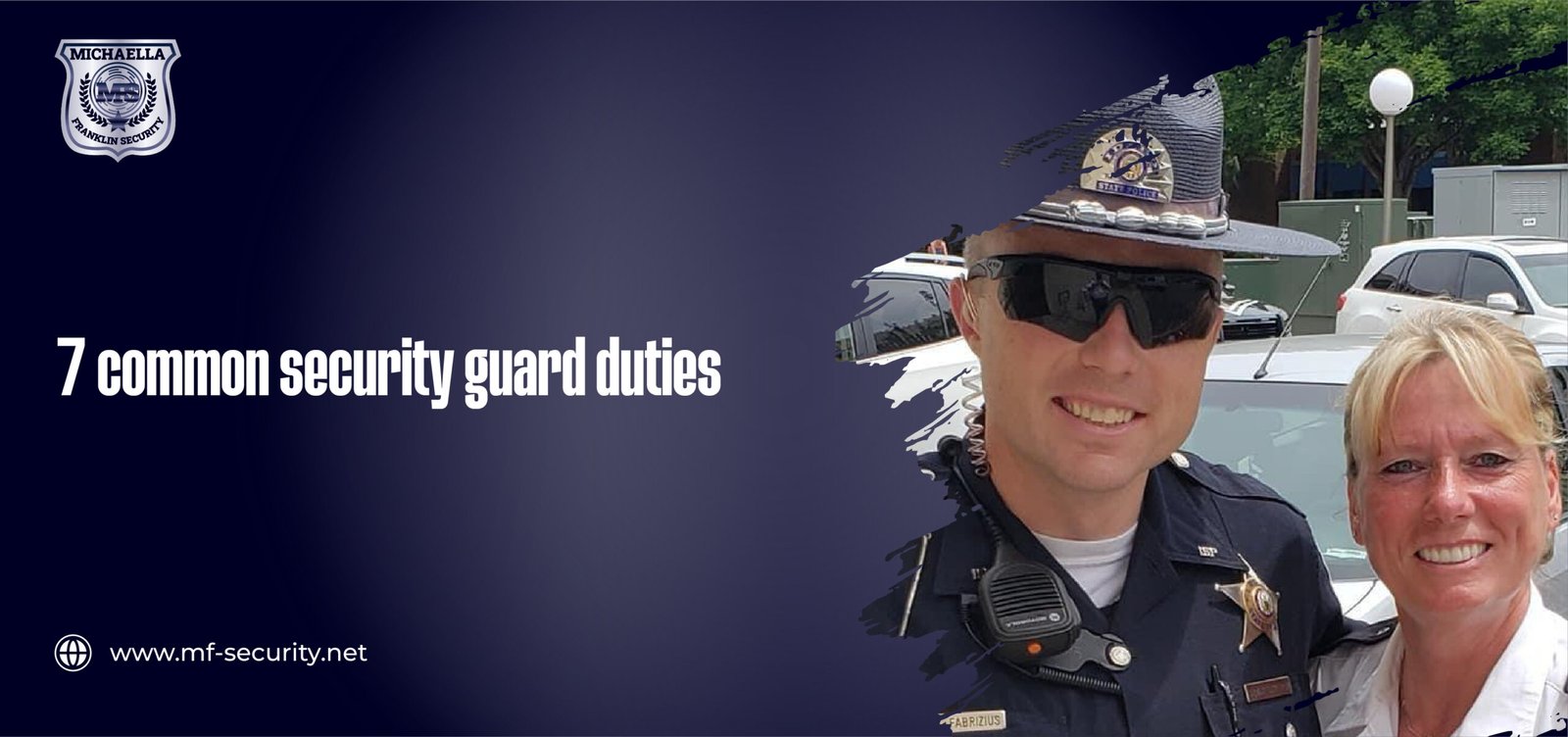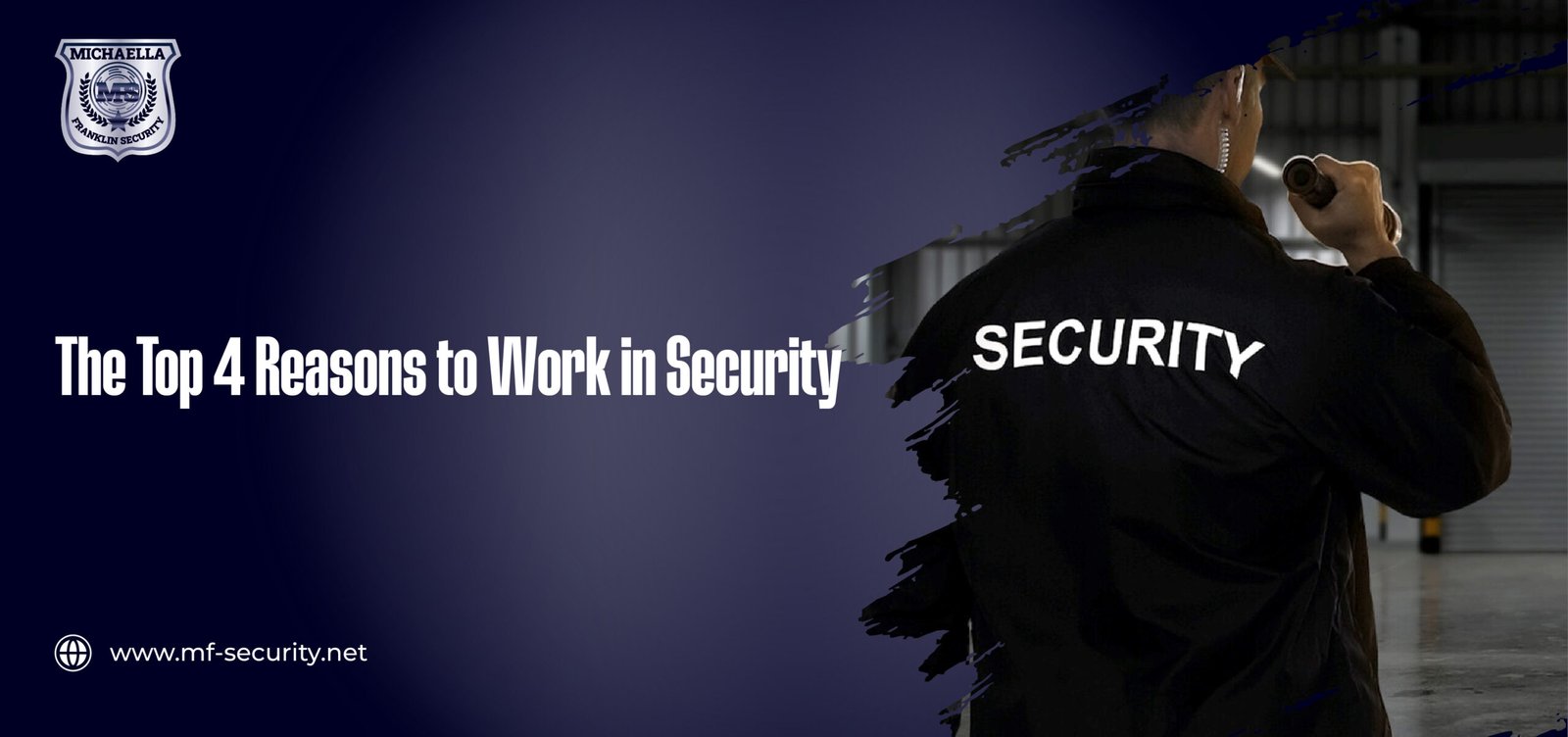When it comes to safety and security, many people are often unsure about the differences between police officers and security guards. While both professions play an important role in maintaining order and preventing crime, their duties, authority, and training can be quite different. In this article, we’ll explore the key differences between police officers and security guards, shedding light on their unique roles and why both are essential to protecting people, property, and peace of mind.1. Authority and Jurisdiction
Police Officers: Broad Legal Authority
Police officers have significant authority granted by local, state, and federal governments. Their jurisdiction is usually broader, allowing them to enforce laws, make arrests, issue citations, and carry out criminal investigations. They have the legal power to detain individuals suspected of breaking the law and to use force when necessary to prevent crime or protect others. Police officers are also authorized to carry weapons, including firearms, in most circumstances.
Security Guards: Limited Authority
In contrast, security guards typically have more limited authority. They are responsible for protecting property, enforcing the rules of their assigned site, and preventing crimes such as theft or vandalism. While security guards can intervene in situations involving criminal activity, their authority does not extend beyond their employer’s property. They do not have the legal power to arrest someone or carry firearms unless specifically authorized by the organization they work for.
Security guards are trained to handle incidents on-site, ensuring quick responses to security threats. Learn more about our event security services and how we help manage safety at local events.
2. Training and Education
Police Officers: Extensive Training and Education
Becoming a police officer involves rigorous education and training. In most places, police officers are required to undergo months of academy training, which includes both classroom instruction and hands-on practice. They are trained in law enforcement techniques, emergency response, criminal law, investigation procedures, and the use of firearms and defensive tactics. Additionally, many police officers hold college degrees in criminal justice or related fields.
Security Guards: Varying Levels of Training
Security guards also receive training, but it typically does not compare to the extensive training required for police officers. While some security guards are well-trained, particularly those in specialized roles such as VIP security or high-risk event security, the standard training for most security guards focuses on general safety practices, emergency response procedures, and customer service skills. Many security guards are required to complete a certification program and undergo background checks, but they do not receive the same level of legal training as police officers.
3. Duties and Responsibilities
Police Officers: Law Enforcement and Public Safety
The main responsibility of a police officer is to uphold the law. This includes responding to emergencies, investigating crimes, making arrests, patrolling public areas, and maintaining public order. Police officers are also involved in traffic enforcement, responding to accidents, and providing assistance in emergency situations like fires or medical emergencies. They are trained to handle a wide variety of incidents, from minor disturbances to major criminal offenses.
Security Guards: Prevention and Surveillance
In contrast, security guards concentrate on preventing crime and ensuring a safe and secure environment. Their duties include patrolling private properties, monitoring security cameras, and ensuring that the facility is safe. Security guards can enforce policies specific to their site, such as preventing unauthorized access or ensuring that visitors comply with company rules. They are also responsible for identifying potential security risks, such as unlocked doors or areas with weak surveillance coverage, and reporting them to management or law enforcement if necessary.
4. Interaction with the Public
Police Officers: Public Service and Authority
Police officers frequently interact with the public in various capacities. They respond to calls for service, investigate crimes, and provide assistance to people in need. Their role requires a significant amount of public interaction, and they must balance enforcement with communication and de-escalation skills. Police officers often handle tense or dangerous situations, and their authority gives them the power to intervene in ways that security guards cannot.
Security Guards: Customer Service and Observation
Security guards also interact with the public, but their role is primarily focused on observation and maintaining order on the property they are assigned to. While they can assist in resolving conflicts, their primary duty is to monitor the premises, prevent crime, and report incidents to law enforcement when necessary. Security guards generally provide excellent customer service by offering assistance to visitors, monitoring for safety hazards, and ensuring that people feel secure. Their interactions with the public are generally less authoritative than those of police officers.
In addition to security, our crowd management services focus on keeping people safe at events, ensuring everything runs smoothly with minimal disruption.
5. Response to Emergencies
Police Officers: Immediate and Coordinated Action
In the event of a serious emergency, police officers are usually the first to respond. They are trained to handle a wide range of critical situations, including active shooter incidents, hostage situations, natural disasters, and major accidents. Police officers are equipped with the resources, legal authority, and support to manage large-scale emergencies effectively. They often work in coordination with other first responders, such as fire departments and paramedics, to ensure a quick and organized response.
Security Guards: First Response and Coordination
Security guards, though often the first to arrive at the scene of an incident on private property, are not trained to handle major emergencies in the same way as police officers. Instead, they provide initial response, assess the situation, and then coordinate with local law enforcement or emergency services as needed. Security guards are trained to de-escalate situations and can provide assistance until the police or medical personnel arrive.
If you’re planning an event and need highly trained professionals to handle potential emergencies, discover our high-risk event security services to ensure a safe and secure experience for all attendees.
Conclusion: Both Are Vital to Safety
While both police officers and security guards play crucial roles in maintaining safety and security, they have distinct responsibilities, training, and authority. Police officers are law enforcement professionals with broad legal powers, while security guards focus on crime prevention, surveillance, and customer service. By understanding the differences between the two, we can better appreciate how each profession contributes to the safety of our communities, businesses, and events.
Whether you are planning a large event or need to secure a building, both police officers and security guards play essential roles in creating a safe environment. If you’re looking for professional security services for an event or business, Michaella Franklin Security Inc offers expert protection tailored to your needs. Our team of security professionals is ready to ensure your safety and peace of mind.

